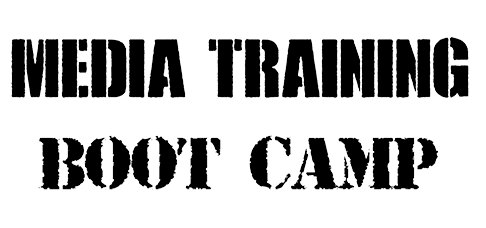One of the most common questions we receive during our media training workshops is how to deal with tough questions. Aside from mock interview training and practice, we recommend watching or listening to an interview with a politician. Politicians are uber media trained to address the most challenging questions. Here’s a quick case study from a recent interview with The Honourable Carla Qualtrough.
The interview topic: Early in June 2016, The Honourable Carla Qualtrough, federal Minister of Sport and Persons with Disabilities, was interviewed on the CBC national TV show Power and Politics. She was addressing the upcoming Olympics in Rio and expressing her excitement for the Canadian athletes. The journalist then began questioning the safety of the event, given the situation with the Zika virus.
The journalist’s question: “So I guess it was a mistake to hold the Games in Rio, huh?”
Qualtrough’s answer: “Nobody saw this coming.”
Qualtrough went on to calmly state that the World Health Organization (WHO) was concerned about the Zika virus but that according to the WHO, there was no need to move or cancel the 2016 Summer Olympics. She then commented that she is excited for the Canadian athletes and that they will have a fantastic time at the Games.
Our analysis: The journalist asked a leading question. A leading question is a question that does not give an answer, but subtly guides the respondent to answer the question in a particular way.
If you were watching the live interview, you would almost expect Qualtrough to agree with the question and respond, “Yes, it was a mistake” or maybe even “No, it was not a mistake.” Instead, Qualtrough’s response was brilliant.
Here are some strategies and lessons that we can learn from Qualtrough’s interview:
- Acknowledge the concern – With her response, “Nobody saw this coming”, Qualtrough respectfully acknowledged and addressed the concern that the journalist had raised. Given that there have been global news headlines about the Zika virus, she did not dismiss the concern as trivial or hypothetical. Qualtrough neither agreed nor disagreed with the journalist’s question. She showed empathy and she did not point blame or fault to anyone for the situation.
- Do not repeat a negative, and answer truthfully – Qualtrough did not repeat any of the negative words from the original question, particularly the word “mistake”. Instead, she responded with a thoughtful and truthful statement (“Nobody saw this coming”).
- Quote a credible source or statistic – Qualtrough helped to allay fears about the Zika virus by quoting a position statement from the World Health Organization, a credible source of information for the public.
- Get back to your key message – Qualtrough’s final statement was a strong key message. Her response showed excitement and optimism for the Canadian athletes. She answered the tough question well and ended her response on a positive note.
Remember these strategies and you’ll be better prepared to handle the next tough interview question that comes your way! Good luck!






